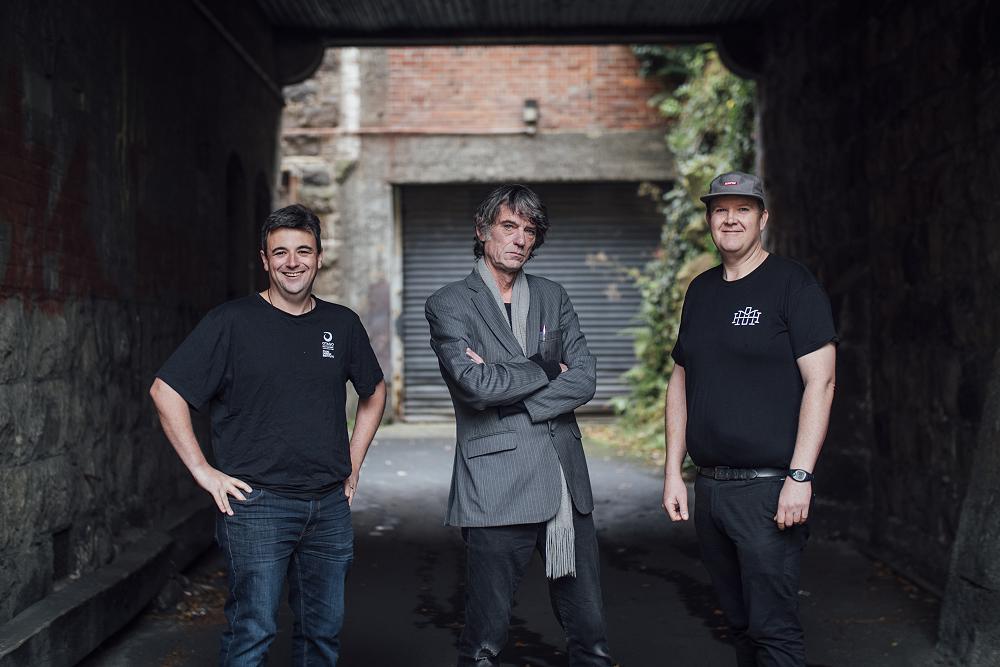
Bird Dog - Song, Drink, Food
It’s late 2016 and two 40-something males, whose formative years were filled with the heady melodies of the 1980s “Dunedin Sound”, reminisce over times gone by: times filled with the innocence of youth, the newness of everything and the coolness of grunge. This was the inspiration for the Bird Dog Hot Dog.
Song
The “Dunedin Sound” is attributed to more than 30 bands and 150 albums, inspired by what Radio New Zealand’s Jesse Mulligan calls the “anger of British punk […] melded with a Kiwi-DIY aesthetic”. It is now the subject of a scholarly book by Dr Ian Chapman (The Dunedin Sound: Some Disenchanted Evening) and Chapman describes it as “the sound of making do with very little”. He continues that the sound was “tribal” – full of anthems for students to set themselves apart from others.
The Verlaines, headed by the lyrical Graeme Downes, were at the forefront of the Dunedin Sound. In the early 1980s, alongside bands like The Clean, The Chills, and Straitjacket Fits (amongst many others), they shaped a musical (and literary) movement that is synonymous with Dunedin and its creative endeavours.
As Graham Reid puts it, Downes’s music has “staked out that sparsely populated territory between high art and populist rock”, with The Verlaines’ 1987 album Bird Dog their “finest” early work. Sean O’Brien has called Bird Dog “emblematic” of the Dunedin Sound, with Reid describing it as “shot through with drama, keen observation, personal soul-baring, literary turns of phrase, brainy rock’n’roll and themes which have often preoccupied him; booze, dying or dead love, and the spectre of death. All fine subjects in literature.”
The title song from Bird Dog is described by Downes as being “about hedonism, the eternal triumph of the vapid, and maybe not taking any of that too seriously”. The video for the song features a variety of dogs running and playing on beaches and in parks, stop-motion animations of children’s plastic farm animal toys and 1950s ceramic wall-hung ducks, interspersed with the band playing on stage and short clips of them in a variety of playful situations. Meanwhile the song finishes with:
Once the bird has stopped its mouth,
Once you’re in this dream you don’t get out
I love this imported German beer
They know how to make it over there
The bird returns to soothe my ear
I love this imported German beer...
Drink
Richard Emerson, a pioneer of the New Zealand craft beer scene, also grew up learning to love the melodies of the Dunedin Sound and the albums of The Verlaines (but the lyrics weren’t really for him, as he has been deaf since birth). He too was inspired by their none-too-serious outlook on life and Bird Dog (the album) was the inspiration for one of Emerson’s Brewing Company’s iconic beers. Bird Dog IPA (Indian Pale Ale) is described as “a tribute” to the album and Richard describes it as reflecting the brewery’s “cheekiness” and “having a bit of fun”. This playfulness is reflected on the imagery of the label (pictured) and in the description on the back label, which states:
For a deaf bloke, Richard Emerson has exceptional taste in music. Bird Dog IPA is named after his favourite album by Dunedin band, The Verlaines. Whether they take his endorsement as a musical compliment or not, he’s done them proud with the beer.
Food
So back to those two 40-somethings… Their inspiration came from their formative years, growing up surrounded by the Dunedin Sound and bands like The Verlaines. Many a night was spent in divey bars, beer-soaked student concert halls and almost-condemned band practice rooms, surrounded by the creative genius and raw energy of the heyday of this post-punk era.
Even then, it was apparent to us that Dunedin’s unique combination of its location at the edge of the world and its thriving student culture had created a hotbed for grass-roots creativity. As Graeme Downes points out in his foreword to Chapman’s book, people were creating something out of nothing and that something was very special. These were exciting times and they have left a lasting impression on us both.
So, this dish – a Tītī (muttonbird) hot dog – is designed to reflect the grass-roots nature of a (music, literary and food) culture that doesn’t take itself too seriously, but punches above its weight. It is humble, yet innovative; approachable, yet sophisticated; and like the Dunedin Sound, speaks of our place at the bottom of the world that is enriched by thousands of temporary student migrants. We have combined indigenous ingredients (Tītī, harvested only by Maori with customary rights; Horopito, a spicy native shrub, and Mānuka, a native wood often used in smoking) with a mash-up of two classic street food items (an Asian steamed bun and an American hot dog).
Words: Richard Mitchell
Food: Adrian Woodhouse
Beer: Richard Emerson
Lyrics: Graeme Downes
Images: Hayden Parsons
